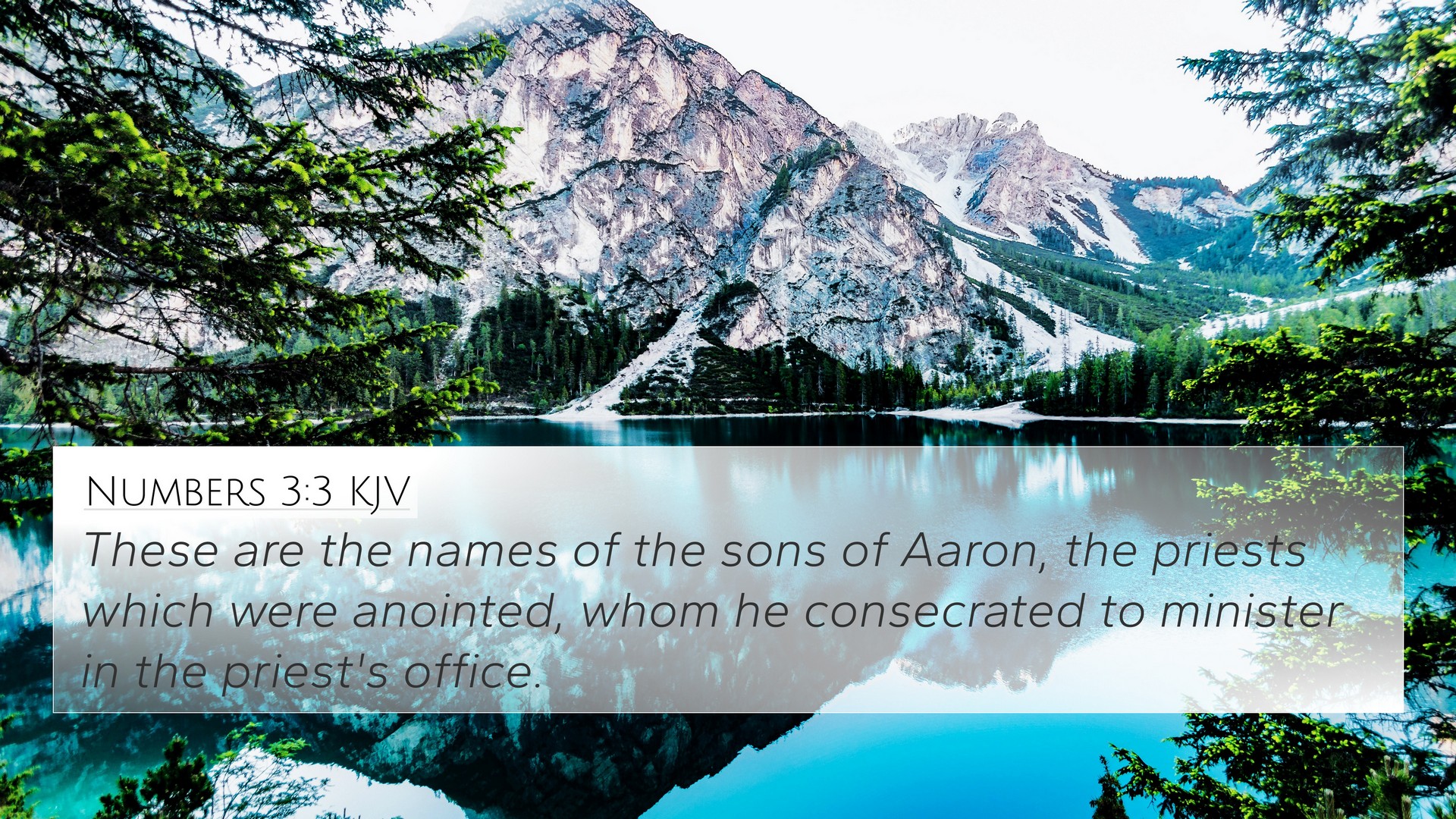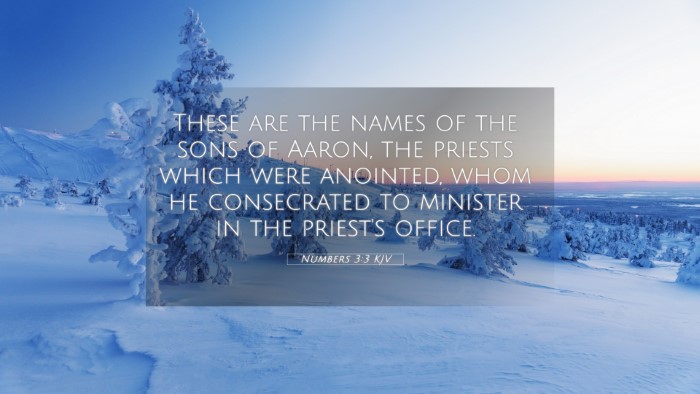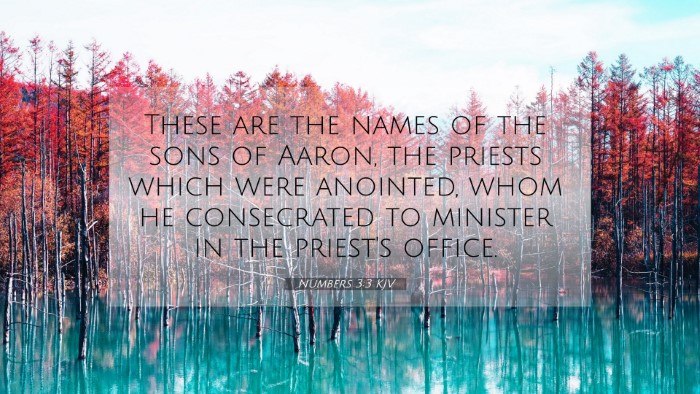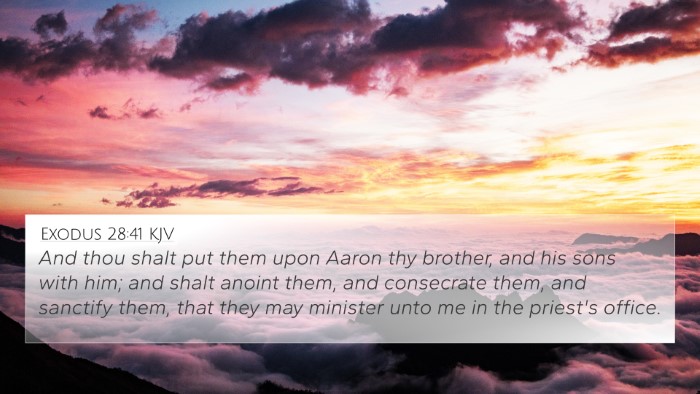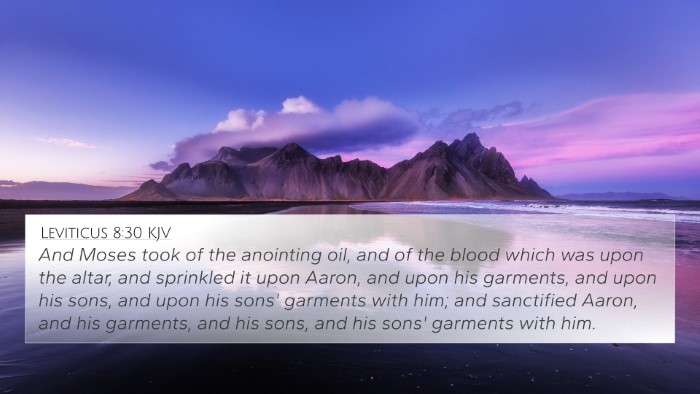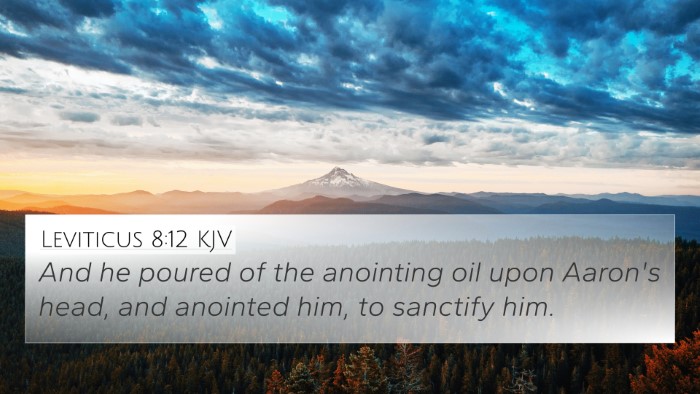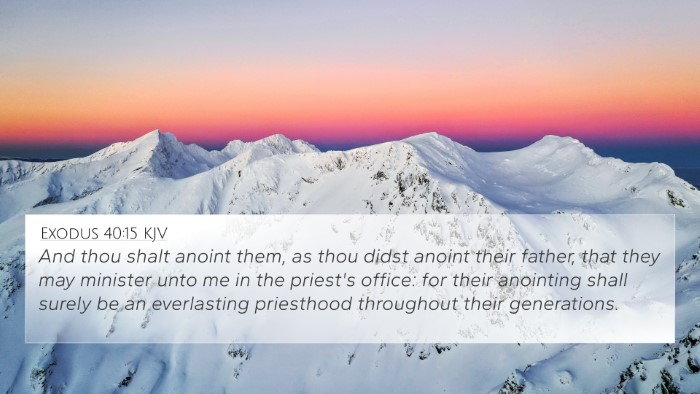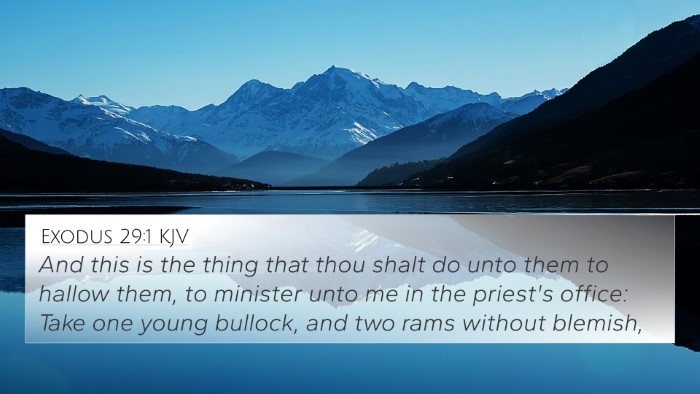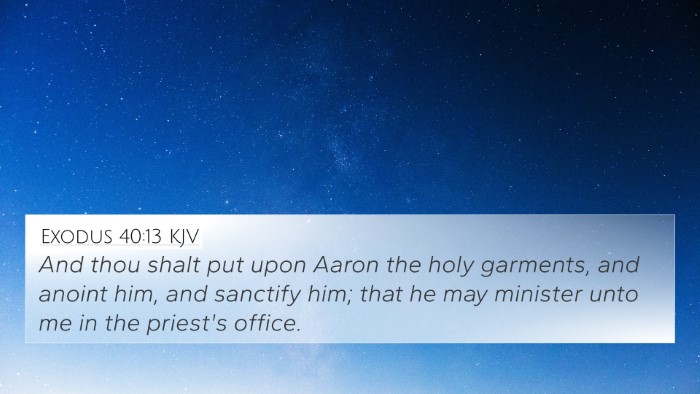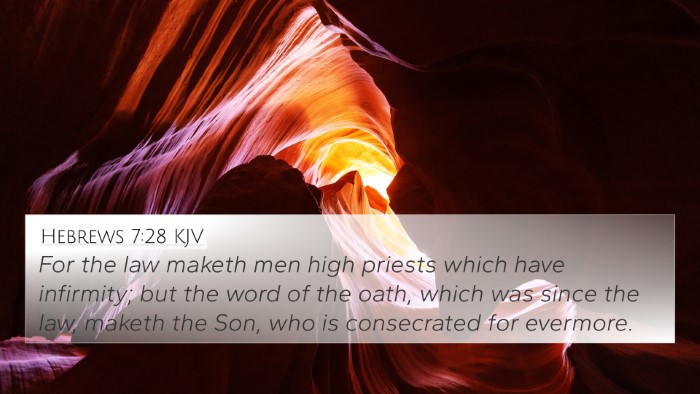Understanding Numbers 3:3
Numbers 3:3 states: "These are the names of the sons of Aaron, the priests which were anointed, whom he consecrated to minister in the priest's office." This verse provides significant insight into the role of the priesthood in ancient Israel, particularly focusing on Aaron and his sons.
Meaning and Significance
This passage emphasizes the importance of the Levitical priesthood, which was established to serve God in the Tabernacle and perform sacred rituals. Aaron and his sons were ordained for this divine duty, showcasing God's selection and empowerment of specific individuals for service.
Commentary Insights
- Matthew Henry: Henry emphasizes the divine election of Aaron and his sons as priests and notes that it portrays God's institution of the priesthood as crucial for worship and intercession for the people.
- Albert Barnes: Barnes highlights that the act of anointing signifies a consecration, setting these priests apart for their holy responsibilities, essential for maintaining the covenant relationship with God.
- Adam Clarke: Clarke elaborates on the significance of the names of Aaron's sons being listed, underscoring God’s recognition and the importance of lineage in the priesthood.
Cross-References
To gain a deeper understanding of Numbers 3:3, consider the following cross-references:
- Exodus 28:1: "And take thou unto thee Aaron thy brother, and his sons with him, from among the children of Israel, that he may minister unto me in the priest's office."
- Leviticus 8:12: "And he poured of the anointing oil upon Aaron's head, and anointed him, to sanctify him."
- Hebrews 5:4: "And no man taketh this honor unto himself, but he that is called of God, as was Aaron."
- Numbers 8:10: "And thou shalt bring the Levites before the Lord: and the children of Israel shall put their hands upon the Levites."
- 1 Chronicles 23:13: "The sons of Amram; Aaron and Moses: and Aaron was separated, that he should sanctify the most holy things, he and his sons forever, to burn incense before the Lord, to minister unto him, and to bless in his name forever."
- Deuteronomy 33:10: "They shall teach Jacob thy judgments, and Israel thy law: they shall put incense before thee, and whole burnt sacrifice upon thine altar."
- Exodus 30:30: "And thou shalt anoint Aaron and his sons, and consecrate them, that they may minister unto me in the priest's office."
Connections Between Bible Verses
The connections established in these cross-references illustrate the continuity of the priestly duty from the Old to the New Testament, reinforcing the significance of mediation between God and His people.
Thematic Bible Verse Connections
When analyzing Numbers 3:3, several themes emerge:
- Divine Calling: The priesthood as a calling from God, not a self-appointed role.
- Consecration: The importance of sanctification in performing holy duties.
- Intercession: The priests act as intermediaries, bridging the gap between God and humanity.
- Obedience: The necessity for priests to adhere strictly to God's commands and guidelines.
Cross-Referencing Biblical Texts
Utilizing tools for Bible cross-referencing helps readers identify connections and parallels between different scriptures, enhancing understanding of overarching themes in the Bible.
How to Use Bible Cross-References
Many Bible study guides provide concordances and cross-reference systems that can be instrumental in obtaining detailed insights into verses like Numbers 3:3. Exploring these references deepens the reader's comprehension and facilitates connecting biblical themes.
Conclusion
Numbers 3:3 serves as a vital text illustrating the establishment of the priesthood in the Israelite community. Through cross-referencing with other relevant scriptures, believers can appreciate the continuity of God's plan for redemption and the ongoing significance of the role of priests. This understanding fosters a deeper relationship with God and His Word.
